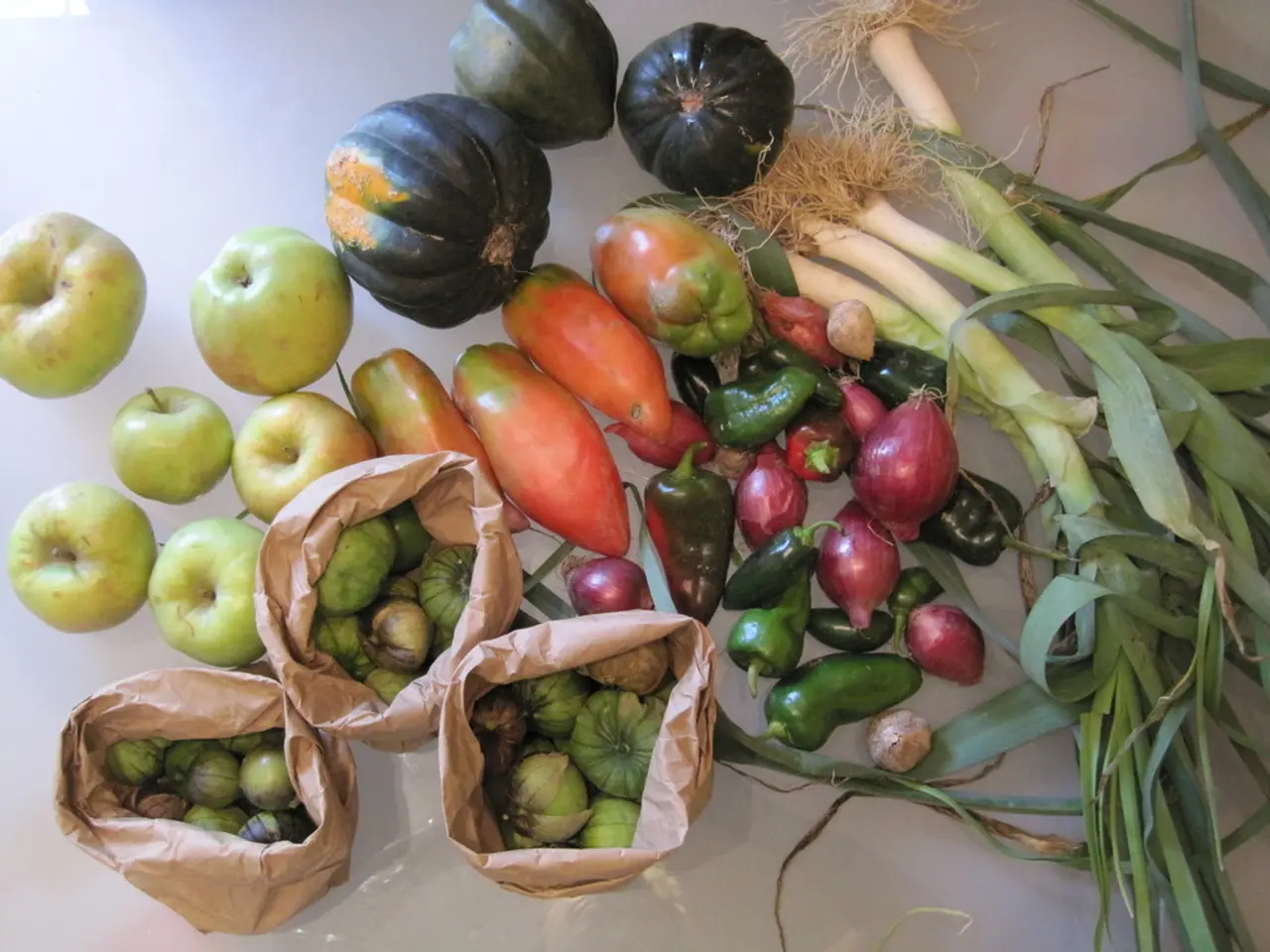Seasonal Tips for a Tidy Garden Post-Harvest
In the "Beginner's Garden Podcast," a speaker discusses the importance of end-of-season garden clean-up. Here are some key points to consider:
Soil Replenishment
After summer crops have taken up nutrients, it's crucial to replenish the soil. Container soil can be reused as long as there were no disease problems, but half to two-thirds of new soil should be added next season.
Renewing Soil
Sowing green manure cover crops, such as winter peas or phacelia, is a suitable method to renew soil of harvested crops in autumn. These cover crops protect the soil, prevent erosion, support soil life, and improve fertility over winter.
Alternatively, planting well-chosen late-season plants or transplanting seedlings can provide a living soil cover. Removing old plant residues and lightly loosening the soil before sowing or planting green manure improves soil structure and nutrient retention.
Weed and Pest Control
If a garden has been taken over by weeds and grasses, or there has been an outbreak of pests, tilling might be beneficial to give birds and other predators access to decrease the population.
Mulching and Composting
Mulch, such as wood chips, can be used to cover garden soil and prevent erosion. Compost can also be used to cover and replenish garden soil, even if it's not fully broken down.
Using Cover Crops
Cover crops, like ryegrass, winter rye, hairy vetch, buckwheat, and others, can be planted to keep the soil covered, prevent erosion, photosynthesize sunlight, keep beneficial fungal networks in place, and tap into minerals deeper in the soil.
Disposing of Diseased Plants and Pest-Infested Plants
Diseased plants, such as tomato plants affected by early blight, should not be composted or left in the garden due to plant diseases persisting in the soil. Squash and zucchini plants should be thrown out if there has been a heavy infestation of pests, as they can overwinter in the compost.
Utilizing Plant Biomass
Corn plants produce a lot of biomass and can be used as a mulch after drying up, or added to the compost pile. If squash and zucchini plants are large and healthy, they can be "chop and dropped" or added to the compost pile.
Beans and peas roots contain nitrogen that can be beneficial for next year's garden, so they should be snipped at the soil level and left in the garden, or added to compost in finer pieces.
Chicken in the Garden
Chickens can be allowed to free range in the garden over the winter, aerating the soil and fertilizing the ground with their manure. However, predators like hawks are a risk when allowing chickens to free range, but they can seek shelter under okra and bean plants.
Okra Stalks
Okra stalks are difficult to pull out and can be left in the ground over the winter to provide a haven for beneficial insects.
Container Care
Containers should be cleaned with soap and water and stored in a sheltered area for the winter.
Three Main Guidelines
The three main guidelines for garden clean-up are: throw out diseased plants, aim for no bare land, and replenish the soil.
Additional Resources
A video is available that explains this topic in more depth.








